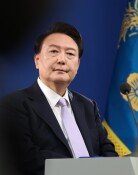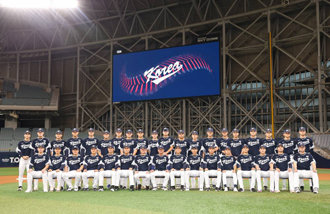U.S. involved in 1965 Korea-Japan talks
U.S. involved in 1965 Korea-Japan talks
Posted August. 21, 2000 13:12,
Shortly before the signing of an amenity treaty between Korea and Japan in 1965, the United States was deeply involved and asked Japan to make a formal apology to Korea for Japan`s colonization of Korea, it has been revealed.
The Asahi Shimbun in Japan reported Aug. 21 the finding by the Special Investigative Force for the Japan-Korea Problem about hundreds of pages of documents stored at the National Archives and Records Administration concerning Korea-Japan negotiations. The documents recently were declassified.
According to the documents, U.S. Ambassador to Japan Edwin Reischauer met with Japanese Foreign Minister Shina Etsusaburo, who had shown reluctance to apologize, and asked him to make the formal apology to Korea. It has also been revealed that personnel at the embassy had met with high-ranking officials of the Foreign Minister`s Office and had made similar requests.
The U.S. State Department reportedly sent communiques in June 1965 to U.S. ambassadors to both Korea and Japan ordering them to meet with Japan`s Prime Minister Sato Eisaku and South Korean President Park Chung-Hee. The ambassadors were to ask the leaders to immediately end the peace talks between the two nations, in the name of President Lyndon Johnson.
The United States also was involved in another issue of contention during the Korea-Japan peace talks concerning the amount of war damage payment. The United States asked Korea whether its claim to war damage could be satisfied with US$400 million and a grant of US$30 million.
As the records of the talks between Korea and Japan had not been publicized and the United States always has maintained that it has not intervened, the Asahi Shimbun judged that the disclosure of the documents could help greatly in the understanding of 1965 bilateral talks between Korea and Japan.
The newspaper suggested that the United States had intervened in Korea and Japan even while being deeply involved in the Vietnam War, and as the conflict with the communist bloc was on the rise. According to the Asahi Shimbun, the intervention may have been a U.S. attempt to stabilize the relations between allies to have Japan support Korea`s effort in the Vietnam War.
Headline News
- Pres. Yoon addresses the nation at a press conference
- LX Group chairman gifts 100 million won to employee family welcoming quadruplets
- Tax-exempt shared offices in rural areas misused as tax havens
- President-Elect Trump promises 'peace through strength'
- French gambler wins 67.2 billion won by betting on Trump’s election win







